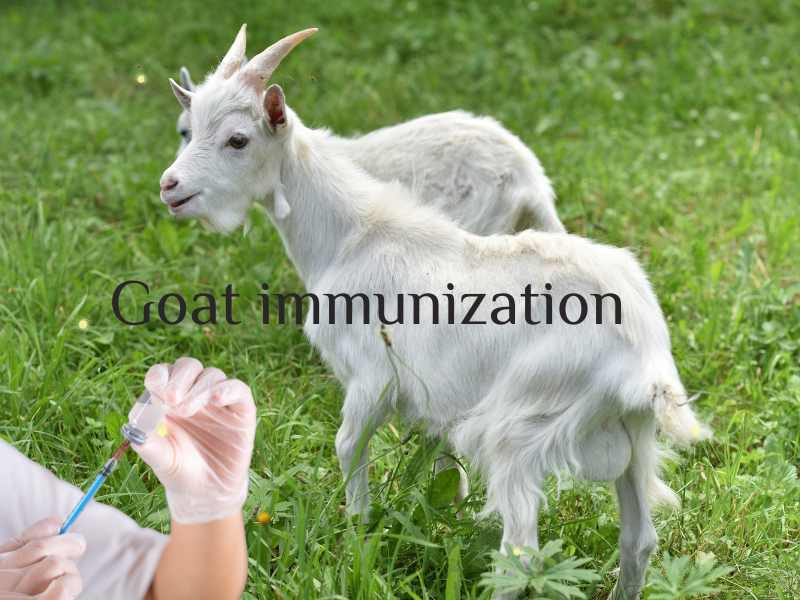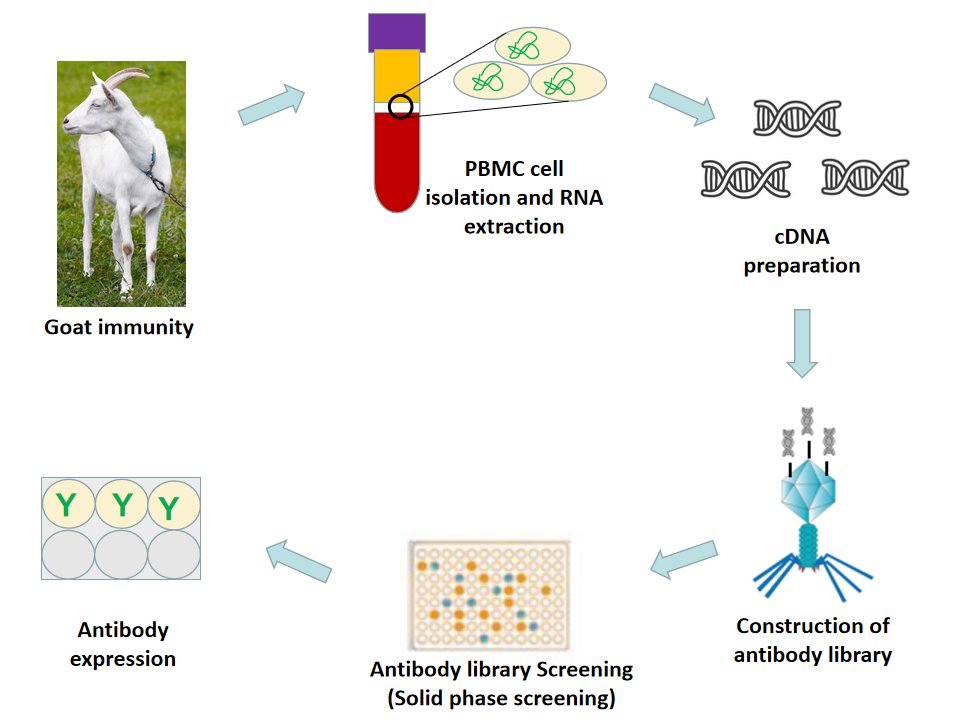Service Line:+86-022-82164980
Address:FL-4, Building A5, International Enterprise Community, Tianjin, China
Email:[email protected]
KMD Bioscience has been exploring antibodies for over nine years. Years of practice have given our scientists the experience to quickly identify problems in your test protocols, solve them efficiently, and answer questions targeted to your needs. A mature antibody production platform, advanced technology, and professional scientists can provide customized monoclonal antibodies of different species. Based on the excellent antibody platform system construction of the antibody purification platform, antibody sequencing platform, and antibody discovery platform, KMD Bioscience covers the upstream and downstream antibody production services. It can offer one-stop technical services, including antibody customization, antibody purification, antibody sequencing, antibody affinity maturation, and so on.
Goat Monoclonal Antibody Production Background
The Goat, closely related to sheep, belongs to the subfamily Caprinae. It is one of the typical species that are generally distant from humans and rodents (e.g. mice). Goats have a different immunoglobulin repertoire compared to other animals, which can result in the production of antibodies with unique specificities and affinities. Besides, goats are the preferred species to produce large-scale monoclonal antibodies. The goat possesses a sufficiently large amount of antiserum, about 7-8 times that of small animal individuals. Goats have a larger blood volume compared to mice and rabbits, allowing for the collection of greater quantities of antibodies. Therefore, the goat has been considered an ideal host for large-scale antibody production with high stability and lower cost. Goat monoclonal antibodies have been utilized for various applications, such as ELISA-matched antibody pairs, IHC or ICC, antibody neutralization, and flow cytometry.
Based on the construction and screening of phage display libraries, KMD Bioscience scientists have successfully constructed a goat monoclonal antibody library with sufficient diversity, which can isolate binders targeting specific antigens with high specificity and affinity. In addition, the synthesized goat antibody library can also be used for specific needs. KMD Bioscience guarantees our high-quality service to our clients and is always willing to share our professional knowledge and technology to assist you in your research projects.
Animal Immunization-Goat Immunization
Antigen Preparation
Purity: The antigen should be highly purified to avoid nonspecific immune responses.
Formulation: Antigens are often combined with adjuvants, which are substances that enhance the immune response. Common adjuvants include Freund's Complete Adjuvant (FCA) for the initial injection and Freund's Incomplete Adjuvant (FIA) for subsequent injections.
Initial Immunization
Injection Site: The antigen adjuvant mixture is typically injected subcutaneously (under the skin) or intramuscularly (into the muscle).
Dose: The dose and volume depend on the antigen and the adjuvant used. A typical dose might range from 0.5 to 1 mg of antigen per injection.

Booster Immunizations
Schedule: Booster injections are given at regular intervals (usually every 24 weeks) to sustain and enhance the immune response. The first booster is often given 23 weeks after the initial injection.
Adjuvant: Subsequent booster doses typically use Freund's Incomplete Adjuvant (FIA) to reduce the inflammatory response.
Blood Collection
Sampling: Blood samples are collected periodically to monitor antibody titers using assays such as ELISA.
Volume: Approximately 2050 mL of blood can be collected from the jugular vein each time.
Final Bleed
Harvesting: After the final booster, a large volume of blood is collected for antibody purification. Typically, up to 500 mL of blood can be collected from a goat, depending on its size and health.
Serum Preparation: The blood is allowed to clot, and the serum is separated by centrifugation.
Goat Monoclonal Antibody Production Service Process

Goat Monoclonal Antibody Production Service Workflow
|
Steps |
Specification |
periods |
|
Step1: Goat Immunization |
* A healthy, full-aged Goat was immunized 5-7 times * Serum titers were measured by ELISA and collected peripheral blood (immunogen: protein, peptide, small molecule, virus) |
9-10 weeks |
|
Step2: cDNA synthesis (Clients can provide cells) |
* Total RNA extraction * RT-PCR * PCR amplification with Actin-specific primers to identify the quality of cDNA |
1 day |
|
Step3: Antibody Library Construction |
* Primer design & synthesis * PCR amplification of variable region genes of heavy using cDNA as a template * Plasmid construction & transformation: after enzyme digestion, the antibody sequence and phagemid vector were ligated and transformed into TG1 host bacteria by an electric shock to construct antibody libraries * Identification: 20-50 clones were randomly selected, PCR identification, sequencing, and analysis of antibody sequences |
3-4 weeks |
|
Step4: Antibody Library Screening (3 Rounds) |
* The antigenic limit pressure method is used for 3 rounds of panning * Identification: 96 clones were randomly selected for ELISA titer determination * Up to 96 positive clones were sequenced, and the 10-15 clones were selected for prokaryotic expression transformation * 10-15 positive clones were expressed to construct antibody supernatant |
3-4 weeks |
Note:
1. If the client provides camel peripheral blood lymphocytes, lymph node cells, or spleen cells (avoid RNA degradation, dry ice transport), the service can start from the second step to construct the VHH antibody library, only 3-4 weeks is needed.
2. Cell lysates were prepared using Trizol solution and transported on dry ice.
Deliverables:
--Experimental report: including detailed construction procedures and representative sequence information
--Antibody library 3-5ml, >1⨯1013 /ml phage particles, Effective storage capacity>109
--10-15 positive clones were expressed to prepare antibody supernatant (Sequence non-repetition)
--10-15 expressing strains of positive clone (Sequence non-repetition)
Goat Monoclonal Antibody Production Service Highlights
--The resulting antibodies have higher specificity and affinity
--Sequence diversity
--Multiple antibody expression validation options are available
--Antibody sequence humanization service is available
--Rich experience accumulation, mature technical route, stable and reliable product quality, high sensitivity
--Strict quality control system, and standardized operation process, to ensure the quality of antibodies
--A variety of expression systems for different antigen production
--Providing mass production services of monoclonal antibodies to meet the needs of industrial production
--Providing integrated services from antigen preparation to phage library construction and antibody screening
--Providing antibody labeling, antibody pair screening, kit development, immunological testing, and other value-added services
How to Order?

If you have any questions regarding our services or products, please feel free to contact us by E-mail: [email protected] or Tel: +86-400-621-6806;